Touching History: Meditations on a Rock Wall
One of those rare moments of connecting with cosmic time
The older I get the more often I have moments in which I come face to face with my own mortality. Not necessarily a pleasant experience.
But every now and then I have one of those moments where I feel like a small cog in a larger, and seemingly immortal continuum, and the uniqueness of that instant gives it a special significance.
Traditionally this occurs for me when I look up at the sky on a dark night, and see the Milky Way straight above, awash in a surrounding sea of stars. I recognize how fragile and insignificant our own planet is, yet how amazingly lucky I am to exist at that moment on Earth , which fortuitously had the right conditions for living entities to evolve, ultimate resulting, after 4.5 billion years, in consciousness.
Our planet will one day disappear, and with it likely all evidence that we were here, but I can look up and wonder right now whether any other beings elsewhere are looking up at points of light in their night sky wondering the same thing. It is all at once a humbling and stupifying experience.
Recently, however, I had a more immediate and visceral experience, during our expedition to Greenland.
Greenland, or at least the part of it we visited, the northeast coast between Scoresby Sound, and Kangerluk Kejser Frantz Joseph, is like no place else in the world I have ever seen, including Antarctica.
While West Antarctica made me think of what the world may have been like before humans arose, it was nevertheless not completely isolated. Our exploration ship was often cruising the same bays as other ships, and I even saw a private sailing vessel near the British Antarctic outpost.
Northeast Greenland however, just before the onset of winter, is isolation personified. I didn’t see a single other ship during the 10 days we were on the water, outside of our short visit to the isolated settlement of Ittoqqortoormit.
But more than this, the grandeur of the scenery made our human presence seem even more insignificant. Everywhere massive cliffs and mountains jutted out of the Fjords, themselves dotted with huge icebergs twisted into shapes of every possible configuration.
Yet at the same time, I had a rare appreciation of the ability of humans to survive in a land that seemed unsurvivable. I had spent almost a month before the expedition researching the science that had been done in Greenland in preparation for two lectures I gave aboard our ship. Once I arrived there, the awe in which I held for the early Greenland explorer/scientists exploded.
As I sat in a Zodiac floating amidst the ice and looked upward toward a glacier capping a nearby mountain, I shuddered at the thought of those brave souls who had the same view, and realized it was the beginning of their journey, not the end. They would go ashore, and plan year long expeditions up into the unknown ice-sheet, facing long odds of survival in temperatures as low as 80 below Fahrenheit, often without much food or shelter, with their dogs and themselves as possible prey for wolves, or polar bears.
But the most memorable experience of all, at least as far as the point of this essay is concerned, occurred one beautiful sunny day while out on a Zodiac cruising next to huge Basalt, Granite, and Gneiss cliffs, sculpted by a billion year history of uplift and collision, as continents merged together and separated. Being color blind, I have never been much for geology, but the unparalleled images that I beheld couldn’t help but inspire me to wonder.
So it is, I found myself as we neared one cliff, asking if the driver could bring the boat close enough to the wall so I could touch it.
As the water lapped against the rock out there in the middle of nowhere I suddenly realized that it was quite possible, even likely, that no human had ever touched that particular rock surface before.
In that instant I thought of that rock cliff, while seemingly impervious, was molded by great events that began even before multicellular life may have emerged on Earth. It evolved over perhaps more than a billion years, underground, underwater, and then thrust up into the air, perhaps multiple times, and how that brief instant when we came together, while so remarkable for me, was just a microcosm of a much larger and more powerful story.
From a solipsistic perspective, it felt like the rock wall had waited a billion years for me to touch it. But my rational mind recognized the insignificance of that moment from a geological, or even cosmic perspective. The rock would continue to evolve, continents would separate and merge, the Greenland ice sheet might disappear and once again regrow, all over the course of thousands of millennia, long beyond human life, and maybe even any life, on Earth, and that brief moment together with me had significance only for me.
And that’s ok. It didn’t depress me because I have lived by the mantra that while there is no apparent purpose to the cosmos, and no cosmic significance to our existence, we make our own significance. Every moment seems more precious precisely because it is unique and fortuitous, and because we ourselves have only a brief moment in the Sun.
But recognizing that fact in the abstract, and experiencing it so directly in that one moment surrounded by that geological menagerie, felt like very different things.
I am not a spiritual person, and I frankly don’t even like the word. But am big on awe and wonder. And I am thankful for the awe and wonder I experience during that one moment in the Sun in that isolated and magnificent place.


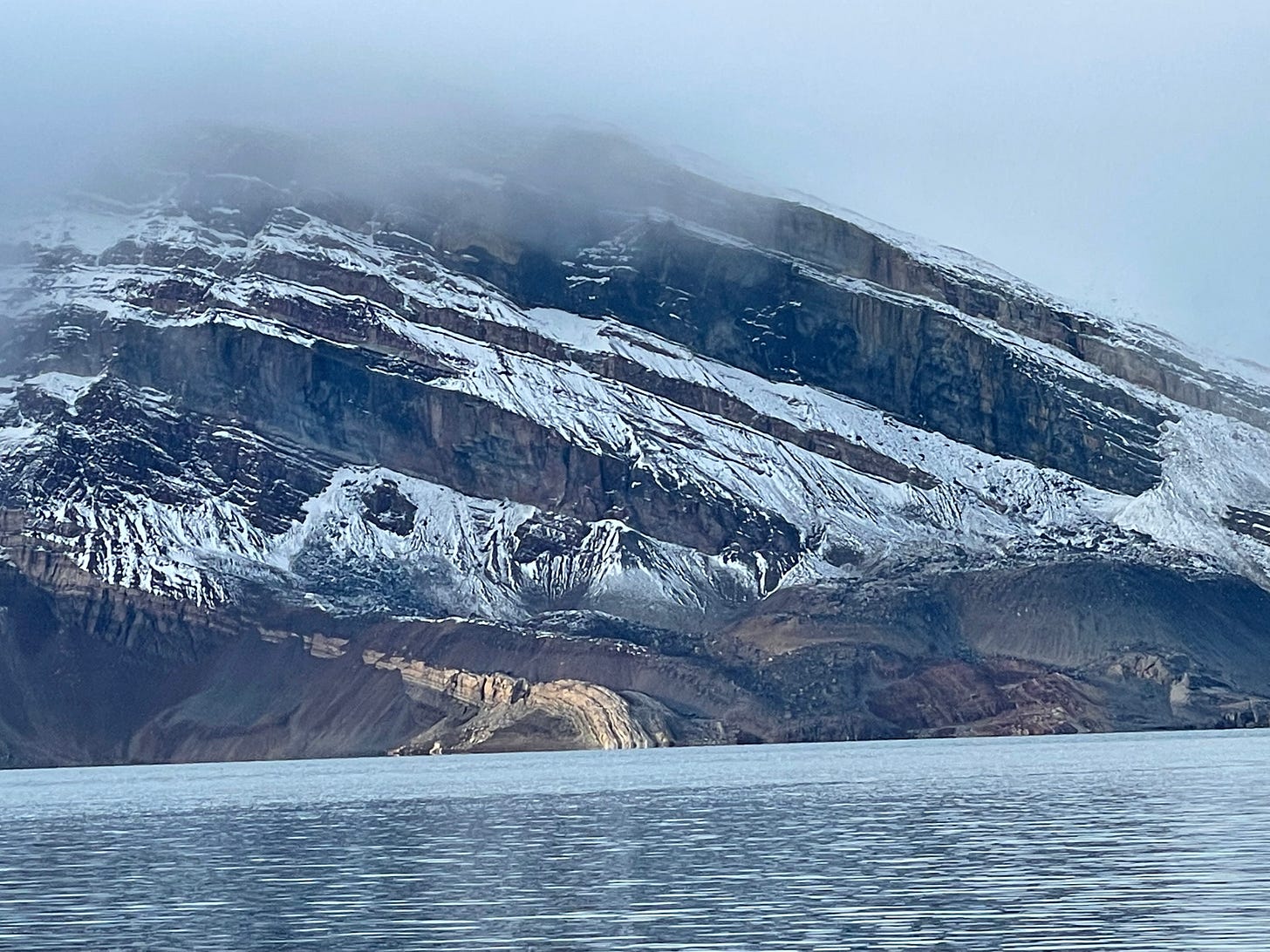
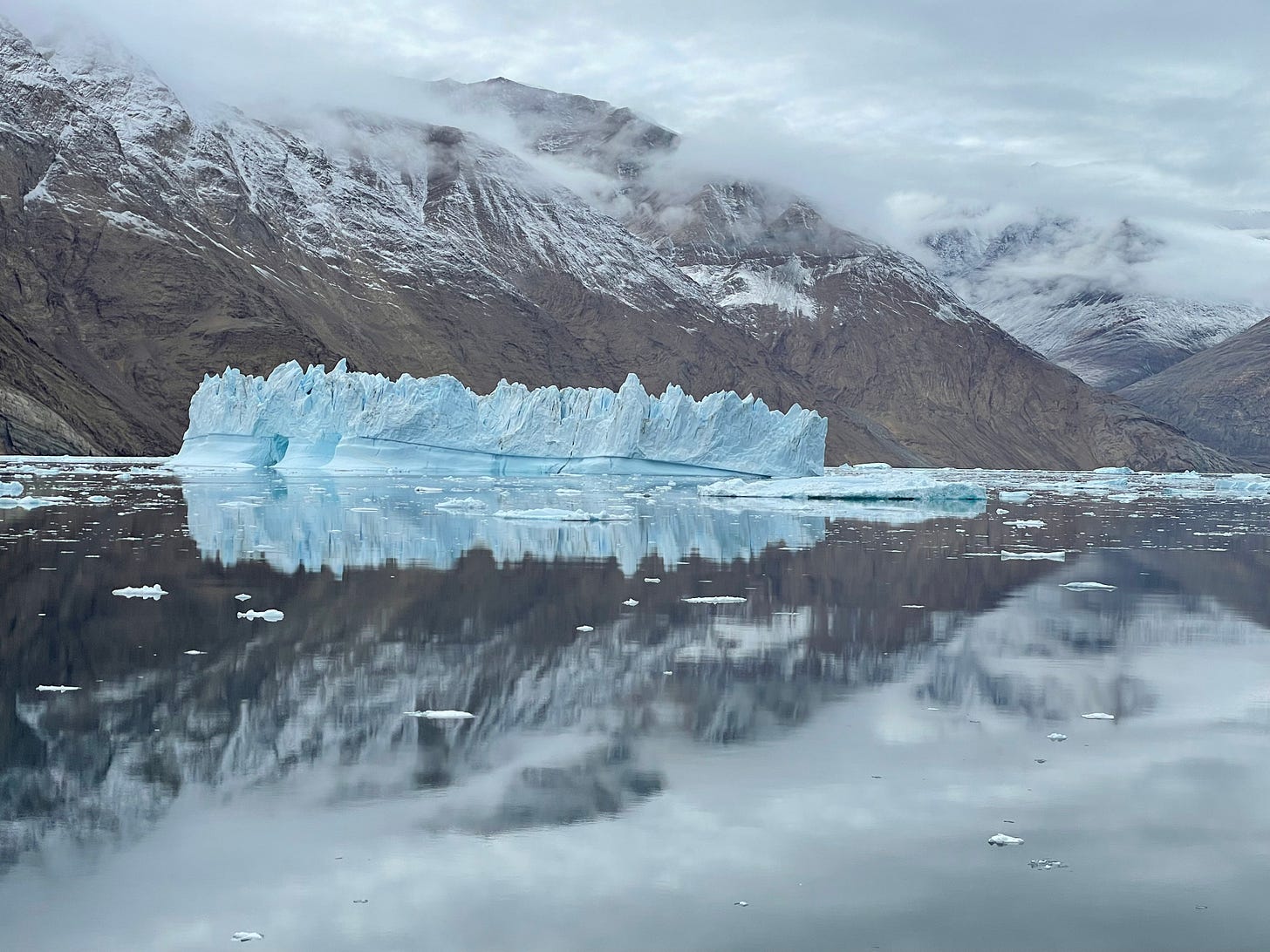
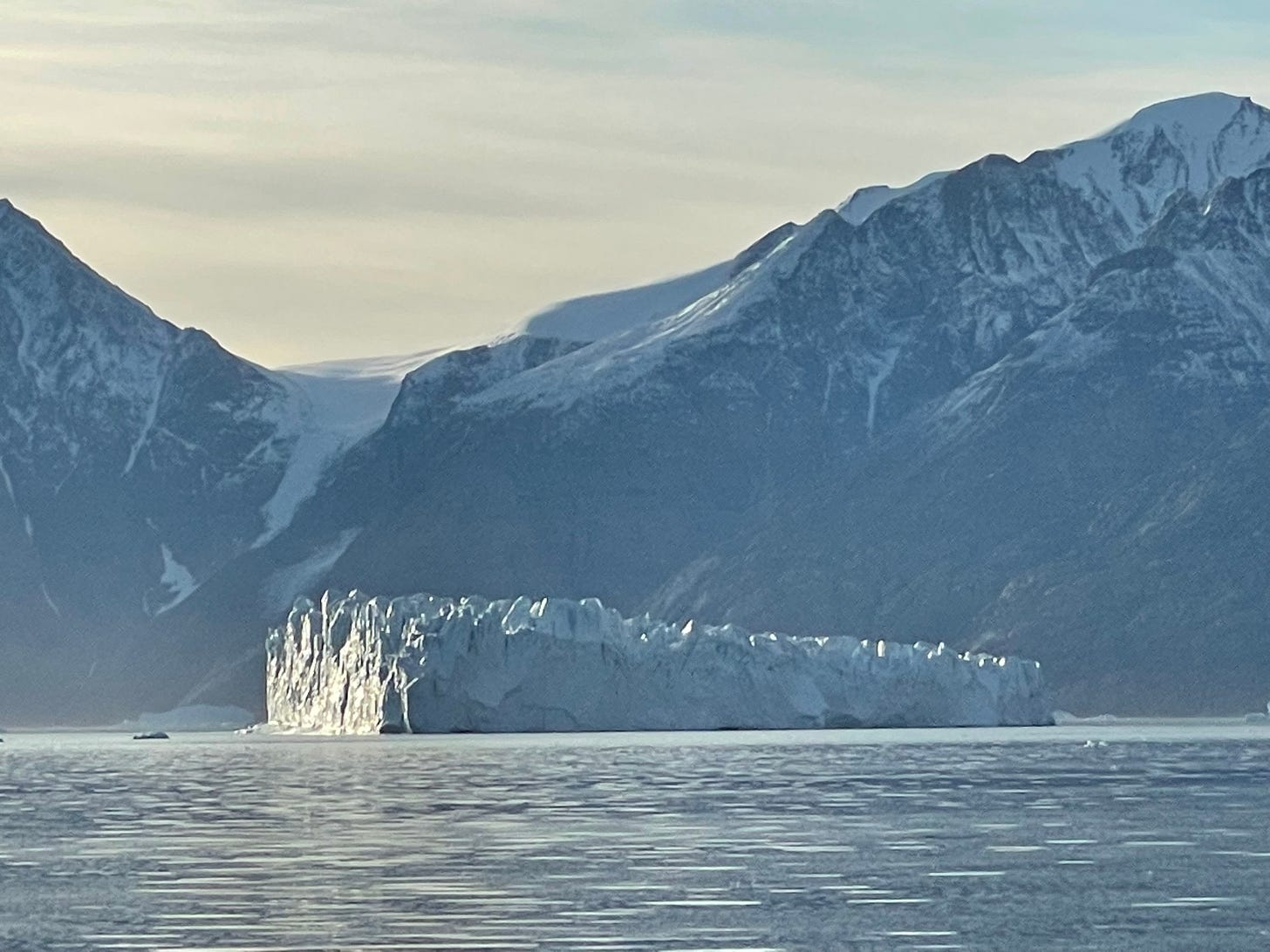
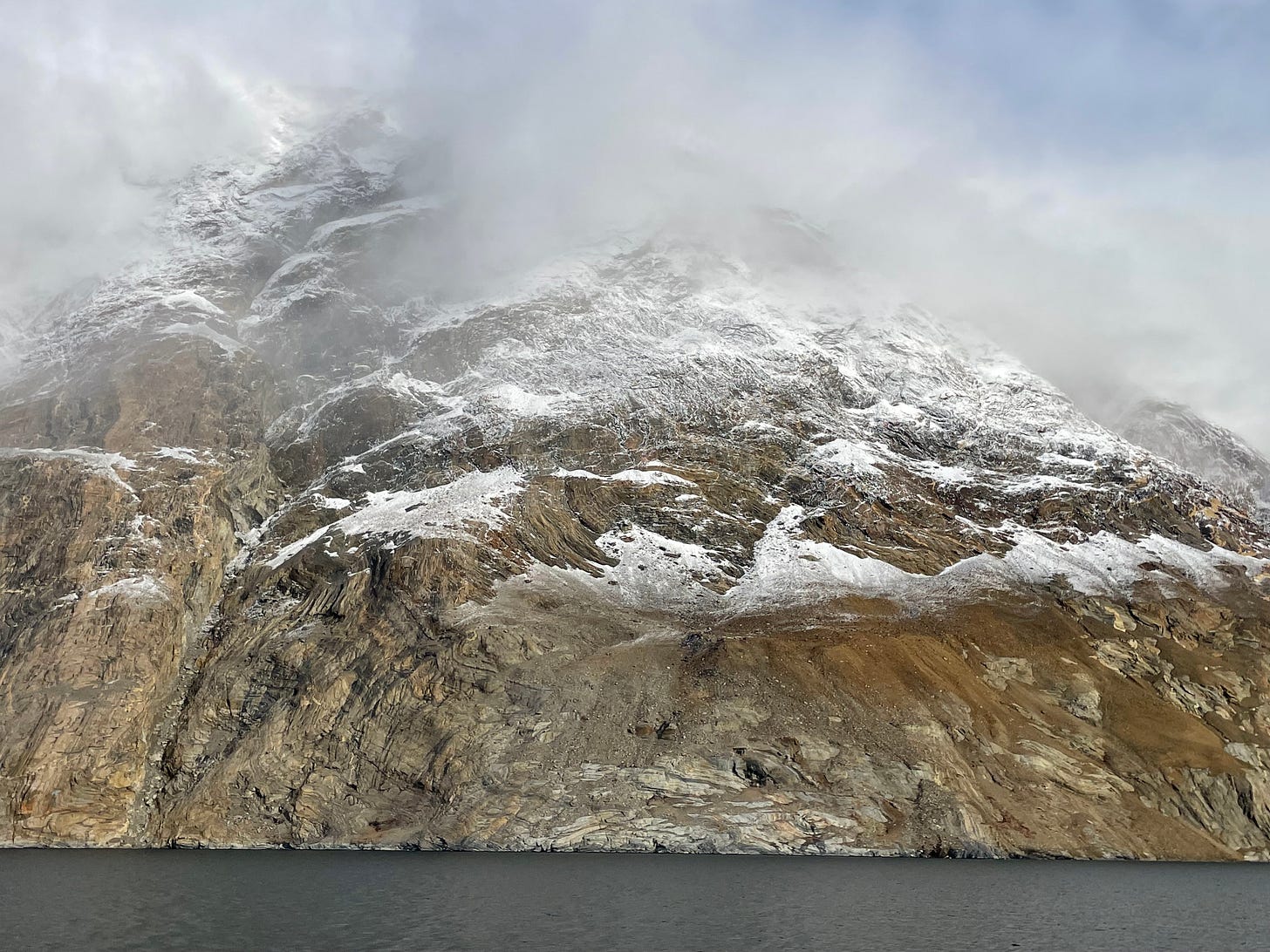
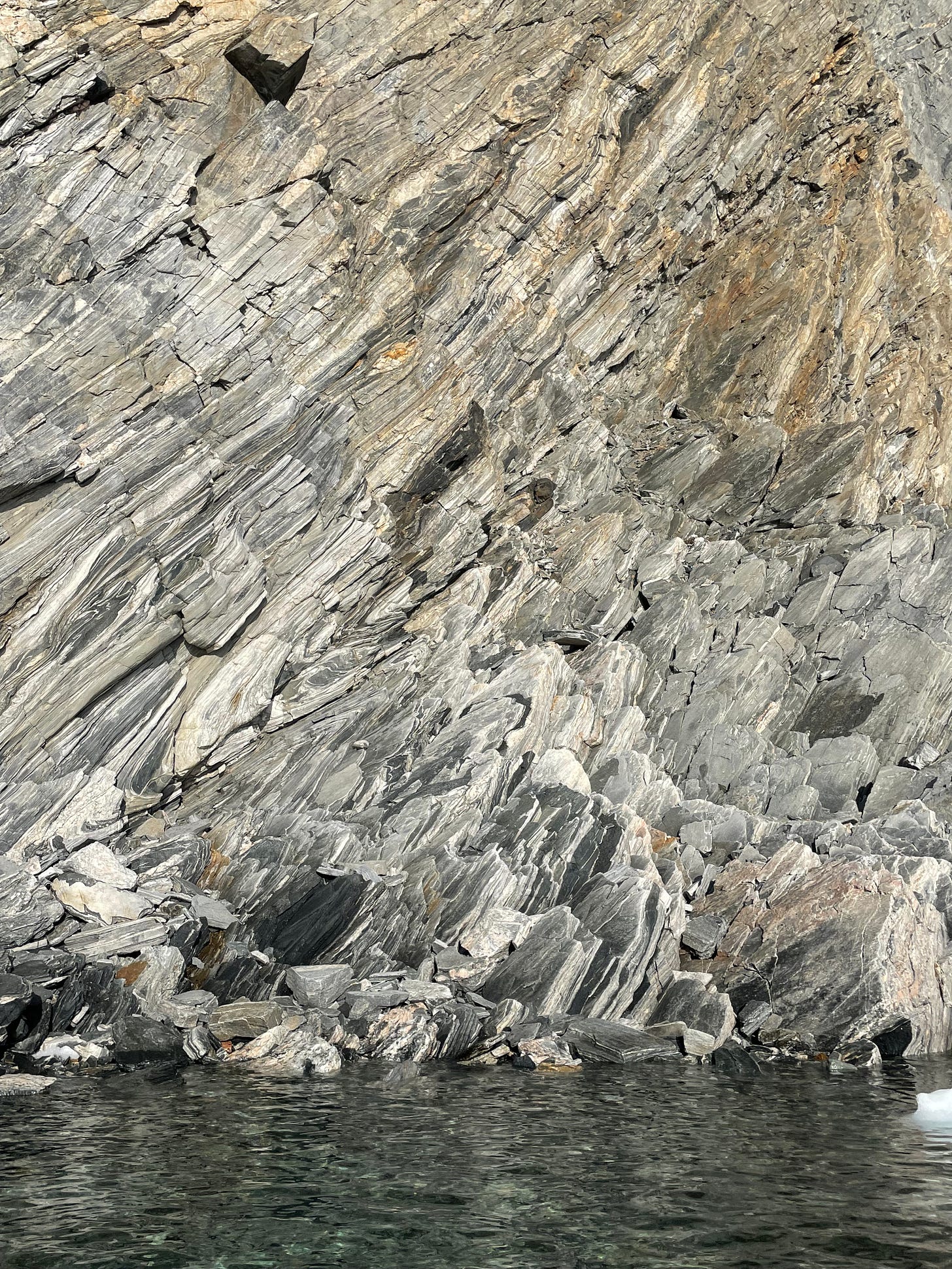
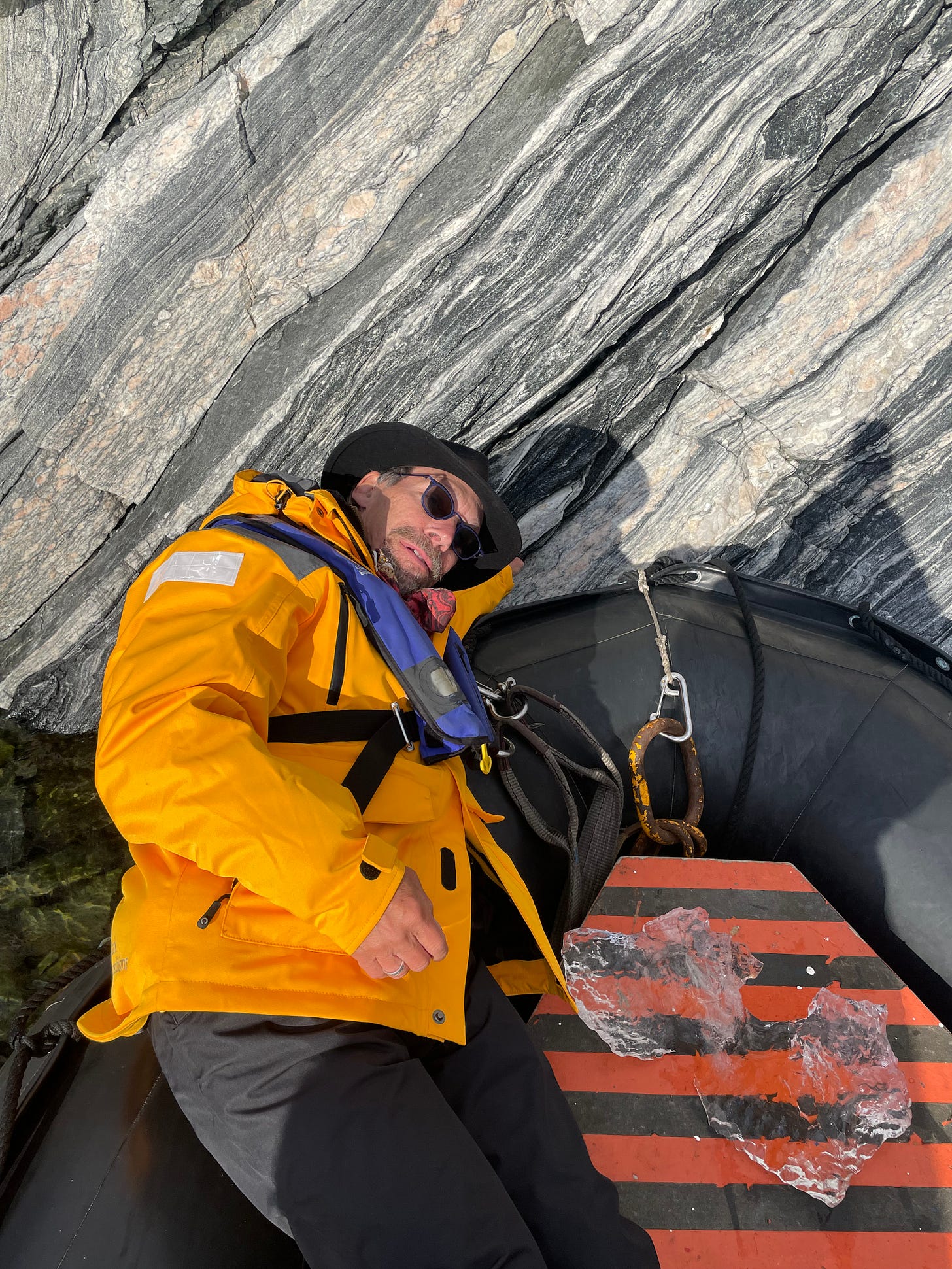
Another incredible read!
Your writing is eloquent.
You painted a beautiful picture in my mind.
Thank you
Sometimes I feel I am part of a collective; a sentient observant cell transmitting thoughts and observations out into the great void. I wonder what other sentient beings on other planets are thinking about their existence and the universe we share. At such moments I feel as though I have shared something with these unknown beings.
I am not alone.